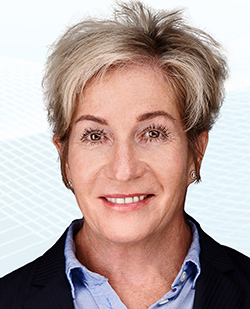
Getting superior claims and risk support
Instead of going it alone, having an experienced partner specialized in risk and claims management can help strengthen your business operations by reducing overall claim costs and minimizing current and future risk. A third-party administrator (TPA) is a company that acts as an intermediary between policyholders, who are self-funded or have a self-insured retention (SIR), and their insurance companies. TPAs specialize in claims administration, managing the day-to-day intricacies of the claims process, and may also offer risk management services.
TPAs have a long-standing relationship with their clientele that typically lasts 20 years or more. Whether you already have a TPA or are looking into hiring one, it’s important to know the quality of service you should expect.
TPAs are used for any self-insured entity looking to outsource their claims processes. Entities that choose a self-insured retention strategy typically use third-party adjusting companies to manage the claims within the SIR or they self-manage claims.
How TPAs help reduce risk and support claims efficiency: Know the benefits
TPAs help to create and sustain safer and more responsible claims and risk operations. Partnering with a TPA also assures that these operations and your claims and risk goals will be handled with long-term attention, flexibility and dependability.
Other benefits:
- Staying on top of and navigating claims with a dedicated claims handler
-
Accessing, archiving and reviewing claims reports and data in one place
- Shortening the life of a claim
-
Getting the best deal: whether it’s a win at the lowest possible expense or settling the claim quickly and cost-effectively
- Understanding risk exposures
-
Providing risk analysis
- Developing and maintaining risk control programs to reduce losses
How to spot good and bad TPA behaviors
It’s a TPA’s job to continuously hit the mark. This is the bare minimum. A powerful TPA provides proactive, flexible, comprehensive claims and risk solutions. If a TPA is meeting at a satisfactory level or below, the downstream impact negatively affects the client and carrier’s reputation and expenses.
“The difference between a good and excellent TPA is determined by two things: nurturing and understanding various claims relationship dynamics and how involved they are in understanding the needs and goals of each client.” -Sue Shields, Director
Here’s what to watch for:
Quality. Assurance. Support. Look for a TPA that demonstrates the following:
- Checking in, initiating contact and collaborating easily and effectively
-
Credentialed: proof of experience
- Offers a dedicated adjuster
-
Aware of the particulars of state jurisdictions
- Detail-oriented/conscious and considerate thinking
- Ownership mentality
- Keying into and discussing knowledgeably the relationship expectations between the carrier, broker and insured
-
Showing ownership of the claims and seeing it as part of the big business picture
- Oriented to industry-specific risk, not just “general risk”
-
Strong network ties to additional support from trusted partnerships, advisory boards, vendors, brokerage services, defense counsel or other connections
- Having the most up-to-date and customizable technology
Stay away from a TPA showing these warning signs:
- Sleeping on the job, i.e., having to chase for updates
- Ignoring counsel’s space to control the litigation and speed
-
Letting counsel be the one who’s sending the updates and who’s driving things forward
- Weak awareness and not fully engaged dialogue.
-
Offering non-industry specific “generalized” claims and risk management
- Lacking dedicated and experienced handlers
“You know you’re working with a quality TPA when it’s clear they aren’t treating your claims as a commodity. For example, when they know the right attorneys and vendors to assign for each different type of claim and know how to work with them collaboratively to achieve the best results. It truly makes a measurable difference in the outcome.” – Nicole Wash, Executive Underwriter, Hudson Insurance Group
Napa River Knows
When we speak with our clients, their number one need is for us to protect their business and bottom line. We do this by getting to know their business and the specific challenges they face; and supporting them with dedicated industry experts who create custom and flexible solutions (using the latest technology) that serve these needs. – Sue Shields, Director, Napa River Insurance Services, Inc.
Napa River Insurance Services, Inc.
A Third-Party Administrator
Napa River Insurance Services, Inc. is a wholly owned subsidiary of Hudson Insurance Company.
866.407.7060








